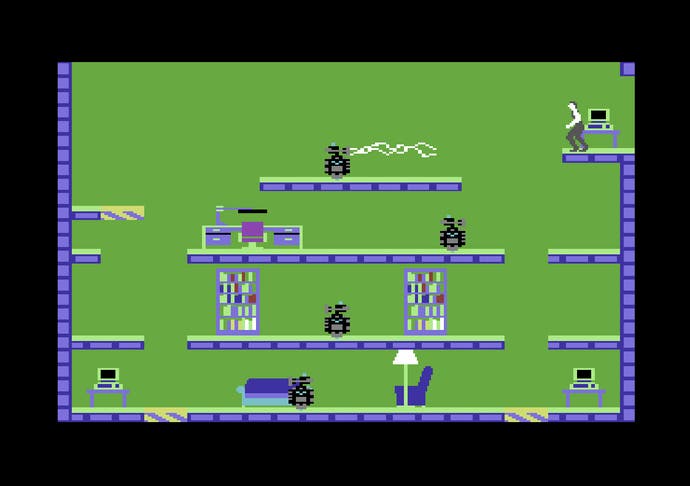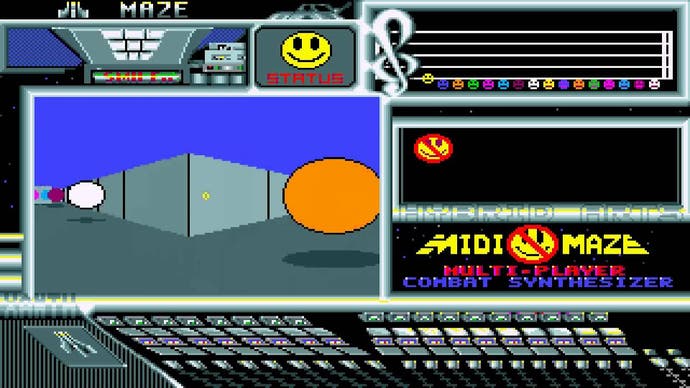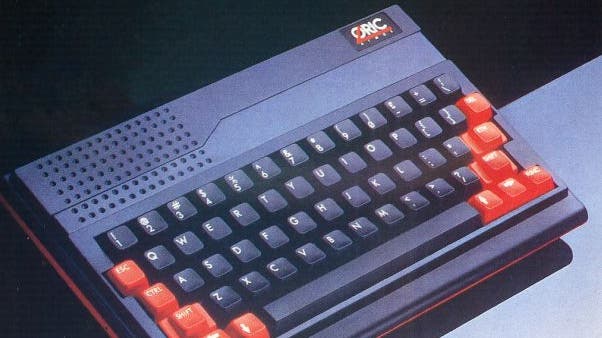Spare a thought for the person who gets the wrong games machine at Christmas
God rest ye, Fairchild Channel F.
In the winter of 1984 my dad saved me from a fate worse than death - and by that I mean he refused to buy an Oric Atmos home computer. Let me explain. The 8-bit era was rolling on and as a family, we had exhausted the possibilities of our ZX81 - in other words we had played 3D Monster Maze and Chess. Now, we were on the lookout for an exciting new computerised machine on which we could, as my father explained it to my mother, "do homework and, um, accounts, yes that's it". I was with my dad in Stockport town centre that fateful day, and as we passed the local branch of Tandy, I saw in the window the aforementioned Oric, a now utterly forgotten 48k machine by the reliable-sounding Tangerine Computer Systems (You can almost hear them naming the company: "Apple is taken, so is Apricot... what's left? Oh god, Banana? No? What then?!") - and it was being sold with four free games. "Let's get that one, it has FOUR free games," I yelled at my dad like the easily led consumer I was. Dad looked down at me with a mixture of disappointment and quiet poise. "No, son," he said. "My friend at work says we should get a Commodore 64". I never did find out who that friend was, but boy do I owe him.
In every video game generation, there are moments like this - terrifying purchasing dilemmas that can make or break our entertainment futures. It's like Schrödinger's cat, except when you open the box there's the possibility that you both do and do not own a ColecoVision. How many Christmases have been ruined by kindly yet ill-informed parents who excitedly bought and wrapped up an Acorn Electron? Imagine bounding downstairs, all the excitement of youth in your fluttering heart, only to find an Apple Bandai Pippin?
For at least the first 20 years of video game hardware, there was more to this than the games you got to play - your games machine was part of your identity. It's fairly accepted now that the BBC Micro was for posh kids, the Commodore 64 was the sensible middle-class option (steady, sedate, reliable - the upper-range Volvo of games) and the ZX Spectrum was the working class upstart, feisty and confrontational; hell, even its attributes clashed. They all had their roles to play. But then you'd get the Kid Who Bought the Amstrad - we all knew one. Slightly befuddled, always running to catch up, the Amstrad Kid had most of the same games as the Commodore and Speccy kids, but no one cared. My friend Dave was one. He couldn't swap cassettes with us, he didn't read Crash or Zzap 64, he couldn't join in on arguments about platform exclusives. Amstrad kids were just there in the background - like tinnitus or the Liberal Democrats.

At first I felt sorry for Dave but then, at the dawn of the Mega Drive vs SNES era, he decided to buy himself a Philips CDi, and frankly I had to give up on him - human sympathy only extends so far. Mostly though, this was an interesting period because there weren't many duds. Cool-conscious kids went for Sega, sensible families went for SNES and then you had your arcade-loving hipsters who opted for a Neo Geo or TurboGrafx-16 - the fourth generation video game equivalent of opening a cocktail bar in Hoxton and then not letting anyone else in because they weren't cred enough.
In the next generation, the people I felt most sorry for were the ones who bought a 3DO. And yes, people actually did this. You had the Sega Saturn vs the Sony PlayStation promising an exciting new era of rivalry and point-scoring, and then you had this other machine the size of a breeze block, which looked like a cross between a video recorder and a submarine escape hatch. It was also ruinously expensive. As a result, 3DO owners were the BBC Micro bores of the era, slightly obnoxious and rarefied, like hi-fi fanatics. I was working on Edge at the time and we got a letter from someone defending his purchase of the console, calling it "a sound investment". I like to think he later put all his money into Lehman Brothers - or the Matsushita M2.
I'm kidding. I hope he quietly sold it and bought a PlayStation, because having the wrong console sucks; having the wrong console separates you from both the games everyone else is playing, and the meta-game of arguing with everyone else about the games they're playing. I went into battle for the Commodore 64 yet I respected my Speccy-owning foes. I respected their decision to support weird British games like Jet Set Willy, Knight Lore and Skool Daze (which all came my way in the end mwahahaha), over glossy American imports. I didn't respect Dave, I pitied him.

It's weird to be in the wrong place in culture and history - I felt this very strongly on the one occasion I got it spectacularly wrong: I bought an Atari ST instead of an Amiga. While an astonishing new society of forward-looking developers built around Commodore's machine, while the Bitmap Brothers, Sensible Software and all the rest did their thing, the only games I had that I could genuinely defend were the weird yet formative multiplayer title, Midi Maze and the epochal RPG adventure, Dungeon Master. The latter ended up on the Amiga anyway, but I got to say I had been with it first; like a bitter drunk at a wedding reception.
When you've been playing games as long as I have, you tend to lose track of the good buying decisions you made, but the bad ones still sting, and you still try to defend them. Never mention the Atari Jaguar when you are in the company of someone who bought one - you will never hear the end of how amazing Aliens vs Predator was, it's miserable. Of course, it is a sign of epic human failing that we cannot bear to make bad decisions about video game hardware, but then, these things symbolise our leisure time, our friendships, our technical nous; getting it wrong is painful and lonely. Like being rejected; like being the black sheep of the silicon family. There should be a support group, a helpline to call. I can picture myself now, as a 12-year-old, in a phone box, carefully tapping in the number, and then, through scorching tears, saying the words, "please help me, I bought an Oric Atmos... but it had four free games... yes I'll hold."

